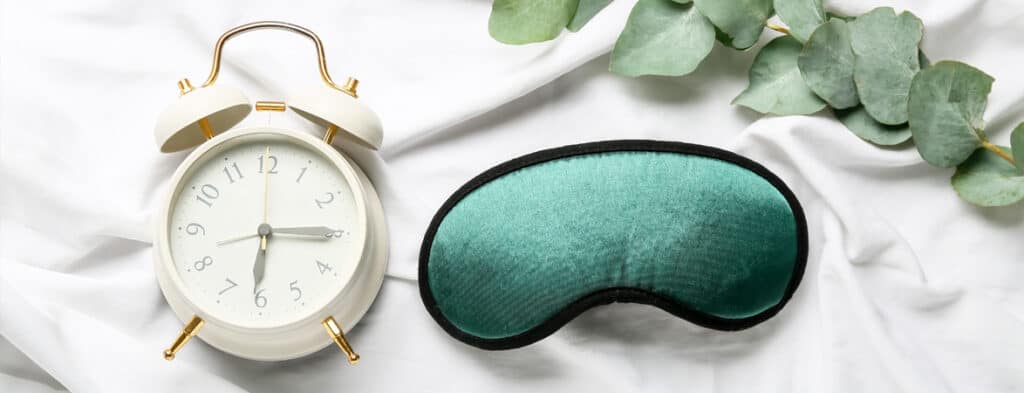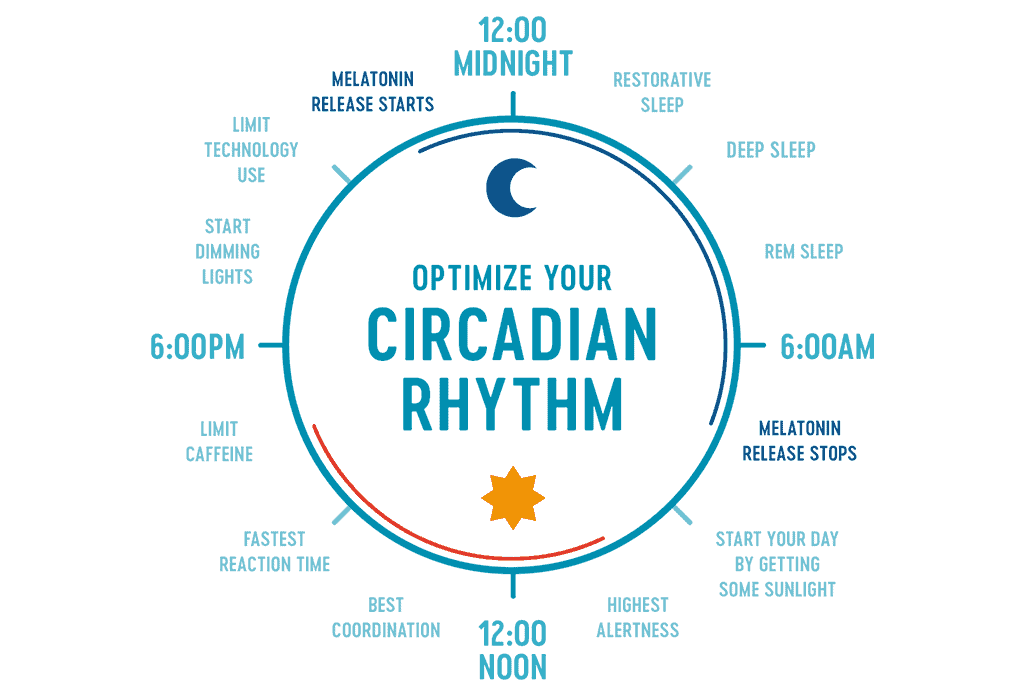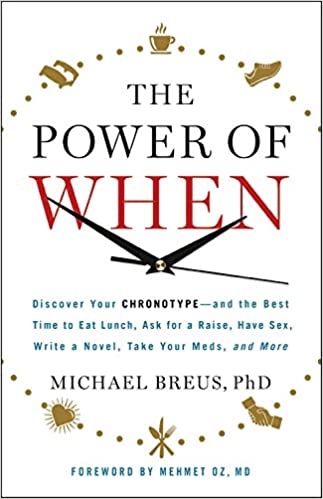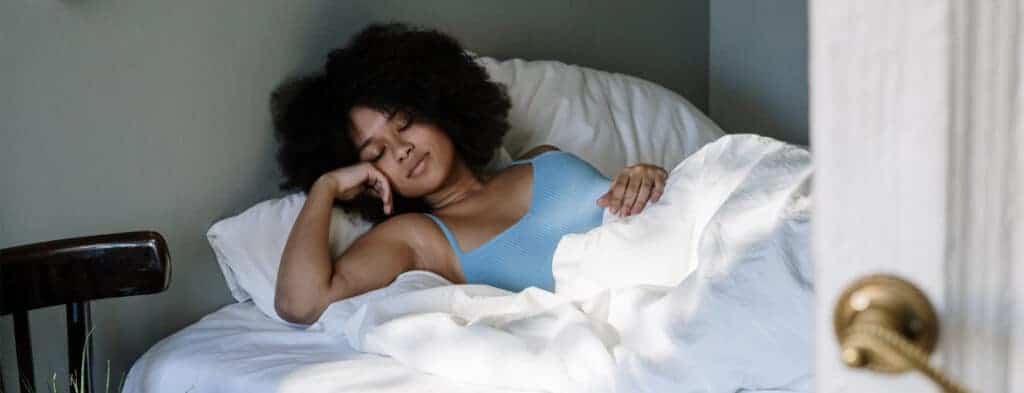Your Sleep Chronotype
I recently had the pleasure of listening to Dr. Michael J. Breus PHD, talk about his life long work that was focused on understanding human sleep pattens and why we are all different in so many ways.

I recently had the pleasure of listening to Dr. Michael J. Breus PHD, talk about his life long work that was focused on understanding human sleep pattens and why we are all different in so many ways. It was really interesting so I decided that it is information that I would like to share with all of you. I hope you will find this as interesting as I did and it hopefully might answer some of your long, unanswered questions around sleep issues.
According to sleep expert and author of The Power of When, Dr. Michael Breus explains that your unique wiring (aka sleep chronotype) determines your most energetic times of day. While you likely already know whether you’re a morning person or a night owl, Dr.Breus takes circadian rhythms one step further with four classifications called sleep chronotypes, which will help you figure out the best time of day to make an important decision, work out and do anything better. So, if you’ve ever felt lazy or unmotivated because your day starts and runs a little later than your peers’, read on to discover your sleep chronotype and how small schedule tweaks will let you reclaim your day.
Circadian Rhythms and Chronotypes
Though we all need sleep, we don’t all follow the same sleep schedule or have the same sleep needs. Paying attention to your sleep habits and cycles and learning more about your chronotype can help you get better control of your sleep schedule and make it easier to get healthy rest at night and wake up feeling refreshed in the morning.
Circadian rhythms are our natural sleep-wake cycle, but our chronotype dictates our body’s natural tendency to fall asleep and wake up at a certain time of day. Our biological clock is influenced by the presence of bright light and more specifically, the production of melatonin. But not everybody falls asleep when the sun goes down—chronotypes are the explanation for some people tending to stay up till the sun rises and others nodding off on the couch before ever even making it to their bed.

So how do our circadian rhythms and our chronotypes work together? Your chronotype is influenced by your PER3 gene (in addition to a number of other genes) and plays a role in many internal systems, so while your body may naturally produce melatonin in the evening hours and cease production in the morning hours like most, your chronotype can influence your body’s production of melatonin. For example, morning people are more likely to have earlier onset of melatonin where melatonin production may be slightly delayed in “night owls.” It’s also worth noting that light exposure can also suppress melatonin production and impede sleep.

When you work against your natural inner schedule, and you’ll sort of have the feeling like you’re permanently jet-lagged. But when you work with it, you can sleep better at night, feel more energized during the day, and unlock your hidden potential, says sleep expert Michael Breus, Ph.D., in his new book The Power of When.
During the teen years, circadian rhythms shift as part of the natural maturing process. This explains why your teenager suddenly likes to sleep in. (No, they’re not just being lazy.) Early school start times clash with teens’ natural brain patterns and result in insufficient sleep. Such unnatural schedules lead to learning and behavior problems, among other troublesome issues. Likewise, the standard, factory-issue workday maxes out productivity for a handful of people, namely lions and bears. Thankfully, managers are starting to flex on start and end times, allowing employees to work at their most productive times. Not every profession lends itself to this model, but the ones that do are catching on.
How Do Chronotypes Work?
- Your chronotype is the natural way of showing you WHEN to sleep. If you sleep when your chronotype dictates it, then your sleep will be of higher quality. You’ll fall asleep faster, have fewer awakenings throughout the night, and maybe even sleep more deeply.
- On the other hand, if you’re trying to sleep or wake up at times that go against your chronotype, you may not sleep as well, and you might feel worse when you’re awake.
- Some signs that your chronotype might be out of sync with your schedule include feeling tired when you want to be alert or frequently having to drink coffee or energy drinks. You might also catch a second wind when everyone else is slowing down, or you start to slow down when everyone else is speeding up.
Your Chronotype Influences How We Age.
As mentioned previously, your chronotype comes from the length of your PER3 gene and is dependent on genetic, environmental, and age-related factors. Your chronotype influences hormone levels, metabolic function, and body temperature, to name a few. While we cannot actively change our chronotype, chronotypes can change as our bodies and brains age (which is why many night owls become early birds in later years). Working against your natural wiring, as much as it might seem advantageous in a given moment, is not productive. Understanding your personal circadian clock and how it operates can help you get rejuvenating sleep at night and lead a happy, healthy life. If you constantly struggle to get good sleep and experience daytime fatigue, we recommend talking with your doctor, as it may be a sign of a more serious sleep disorder.

What is your Chronotype?
A chronotype is your own personal biological clock that controls your body’s rhythms—it’s the reason you are grumpier in the morning or focus better later in the day. People typically fall into one of four chronotype categories: the bear, the wolf, the lion, and the dolphin. Each chronotype is loosely based on the relative animal’s sleep patterns and habits, so let’s dive in to discover which chronotype you most closely align.
There are 4 Sleep specific chronotypes:
- The Bear
- The Lion
- The Wolf
- The Dolphin
Bears

Most people fall into the bear chronotype category. Bears’ sleep-wake patterns follow the sun, and they have no difficulty sleeping. Bears are most ready for intense tasks smack in the middle of the morning, and they feel a dip in the mid-afternoon. Overall, bears have steady energy and get things done. They can maintain productivity all day as long as they don’t try to push past the mid-afternoon recharge period. Bears tend to be friendly people-people.
Lions

Lions wake up early. These are the go-getters, the leaders, the type-A movers and shakers. They might not reach for a cup of coffee until a little before lunch, and their most productive hours have already passed by that time. Because of their action-packed mornings, they tend to fizzle out in the evening and turn in early.
Wolves

Wolves are on the nocturnal end of the spectrum. They get a later start to their day and ride the productivity wave while the rest of the world winds down. Interestingly, wolves have two peak periods: from noon to 2:00 p.m. and again just as most of the working world is clocking out. Wolves tend to be makers — writers, artists, coders. The creative areas of the wolf’s brain light up when the sun goes down. More often than not, wolf types tend toward introversion and crave their alone time. The wolf chronotype schedules later meetings and invites you to dinner just past the restaurant’s dinner rush.
Dolphins

Dolphins may or may not have a regular sleep routine. As light sleepers, they frequently wake throughout the night and often do not sleep enough. Dolphins struggle to fall asleep, ruminating over the day’s failures. Dolphins’ extreme intelligence and tendency toward perfectionism probably explain why they spend so much time chewing over the day. They do their best work from mid-morning through early afternoon.
Review and Conclusion:
Due to underlying biological and genetic factors, each person’s chronotype is hardcoded. This means you can’t physically change or alter your chronotype as it’s determined by the PER3 gene. However, factors such as age may influence chronotype.
While we can’t change our chronotypes, you can use your knowledge of them to better tap into your internal clock and improve not only your sleep quality but also your productivity. Understanding your chronotype can help you set ideal bed and wake times, and help you better organize your schedule.
Though we all need sleep, we don’t all follow the same sleep schedule or have the same sleep needs. Paying attention to your sleep habits and cycles and learning more about your chronotype can help you get better control of your sleep schedule and make it easier to get healthy rest at night and wake up feeling refreshed in the morning. To learn more about your chronotype and get better sleep, take one of the quizzes discussed above!
https://www.doctoroz.com/quizzes/whats-your-chronotype
Written by Trish Green March 29, 2021

Written By Trish Green DiHom(Pract) B.Ed Cidesco Diplomat. Bach Flower Therapist.
Trish is a graduate of the Victoria University of Manchester, Trish is a teacher with 35 years of experience in the education field. For twenty of those years she has been an educator in the esthetics industry. She is an advocate for raising standards in education for Complementary Health Care Practitioners with special interest in Aromatherapy. Her career in the field of natural health and esthetics is wide and varied. From Doctor of Homeopathy to Cidesco diplomat, Trish is a dedicated professional, committed to ongoing education and the education of others.
